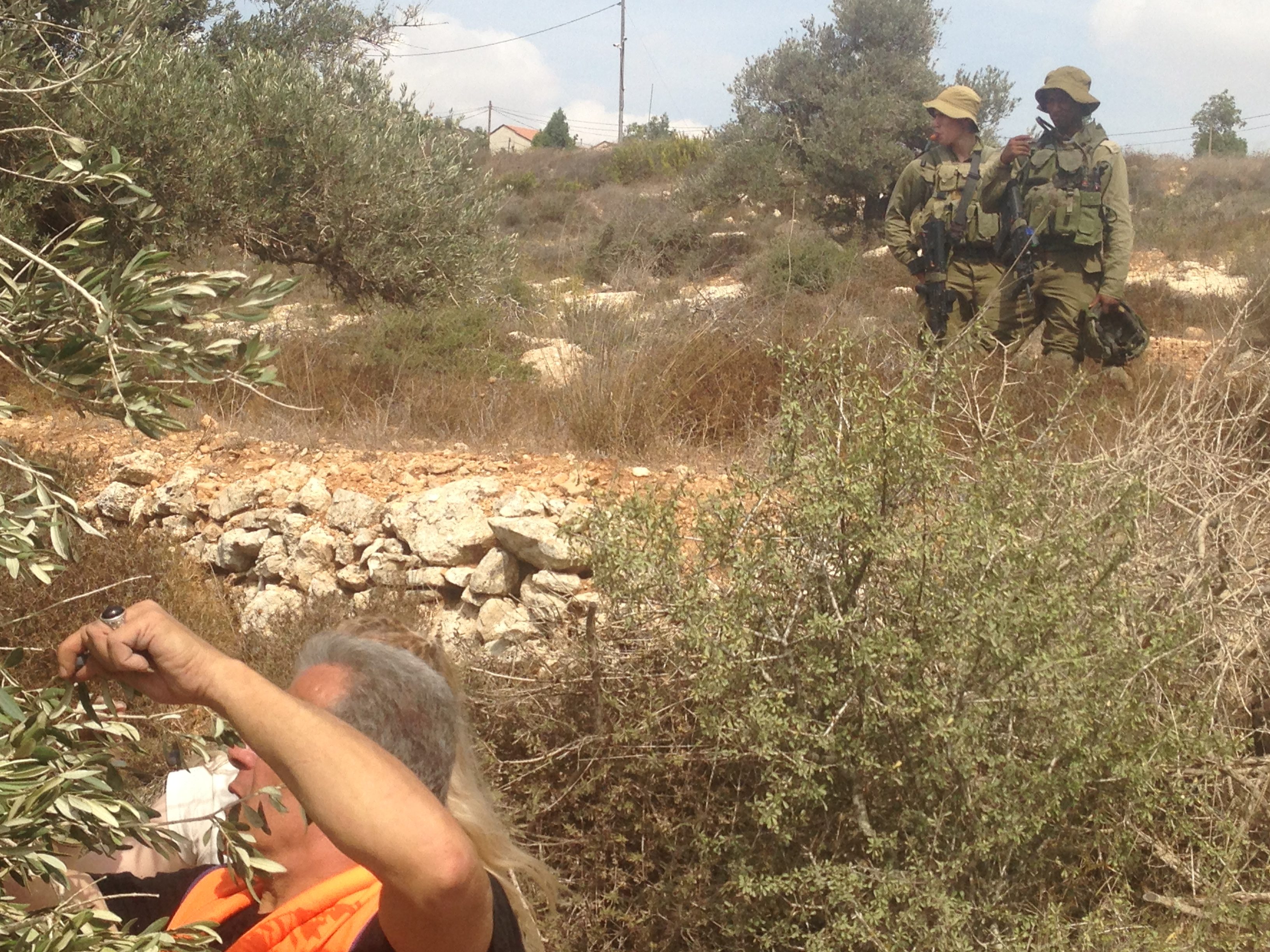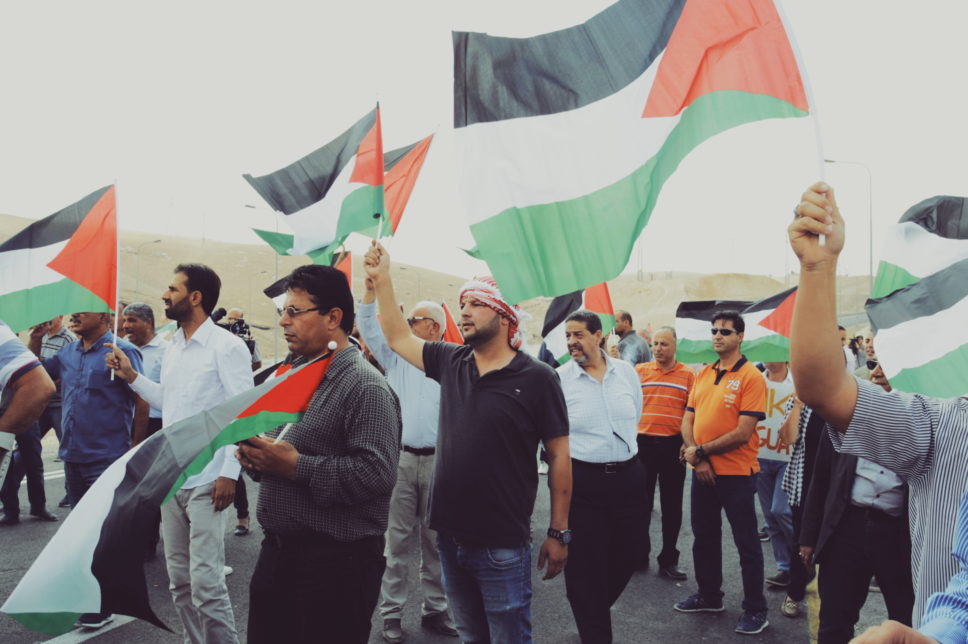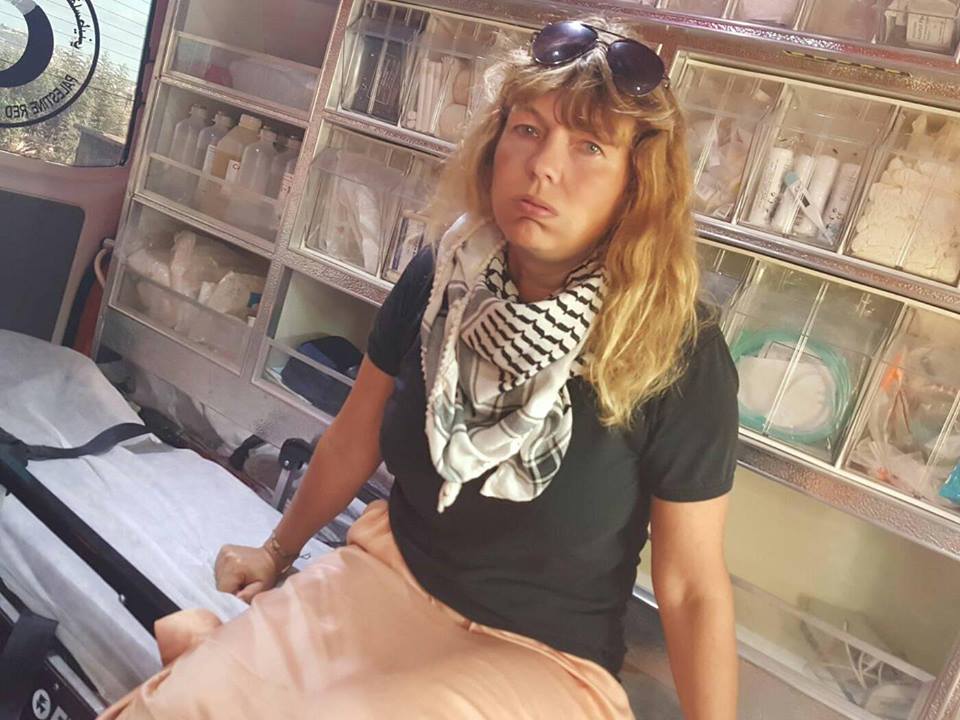Tag: Israeli Army
-
Video: Israeli soldiers, police harass olive pickers in As-Sawiya village
October 7, 2018 | International Solidarity Movement | As-Sawiya, Occupied Palestine A group of Israeli soldiers, one Israeli policeman, and one Israeli settler harassed a group of Palestinian and international olive pickers in As-Sawiya village yesterday, demanding identification and threatening to expel the harvesters from the area. Soon after the group began work,…
-
Activists stand in solidarity with the residents of Khan al-Ahmar
7 September 2018 | International Solidarity Movement, Ramallah team | Khan al-Ahmar, occupied Palestine After an Israeli court ruling on September 5 2018 confirmed the eviction and demolition of the Palestinian Bedouin village of Khan al-Ahmar, residents of the village, Palestinians from across the West Bank and international activists have gathered each day in solidarity…
-
A statement from the Norwegian ISM volunteer targeted and shot by an Israeli soldier in Kafr Qaddum, video included
18th August 2018 | International Solidarity Movement, Ramallah team | Kafr Qaddum, occupied Palestine A description of the events of Saturday, 18th of August, from the Norwegian ISM volunteer targeted and shot by a soldier in Kafr Qaddum I, Kristin Foss (43) work as a volunteer for ISM (International Solidarity Movement). ISM is a…



